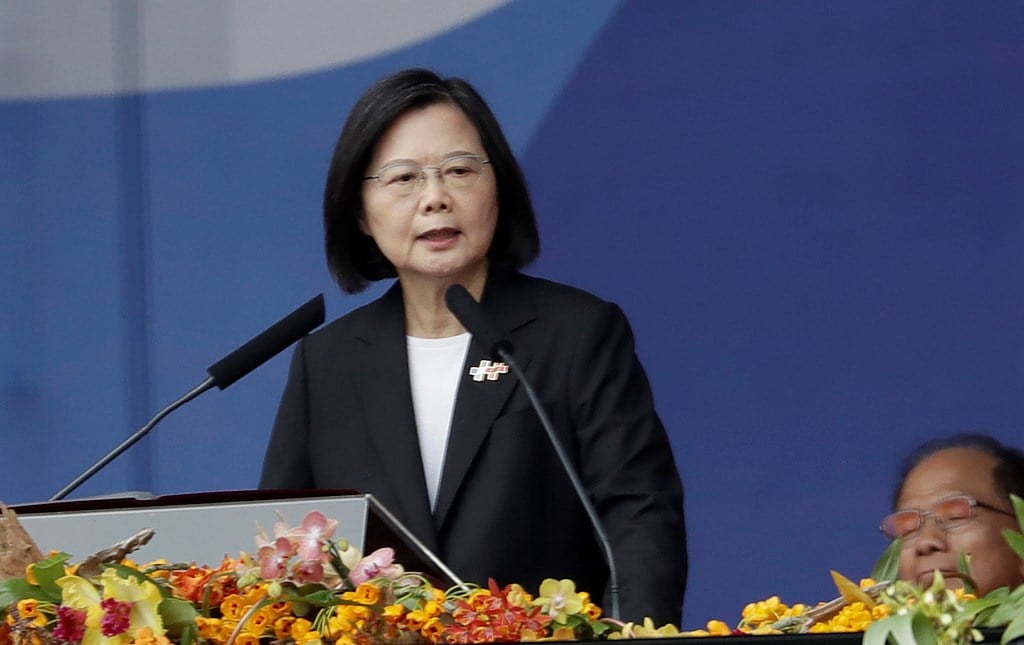Tsai says Taipei seeks 'peaceful coexistence' with China
Taiwan President Tai Ing-wen says her duty was to ensure Taipei's sovereignty while the Chinese Ministry of Foreign Affairs ha yet to comment.
-

Taiwanese President Tsai Ing-wen delivers a speech during National Day celebrations in front of the Presidential Building in Taipei, Taiwan, Tuesday, Oct. 10, 2023. (AP)
Taiwan President Tsai Ing-wen said, in a speech on Tuesday, that Taipei sought "peaceful coexistence" with China on condition that there would be unrestricted interaction.
Tsai, who will not be able to run again during the upcoming Taiwan election in January, said "Since this is a time we can now face the world with confidence and resolve, we can also be calm and self-assured in facing China, creating conditions for peaceful coexistence and future developments across the Taiwan Strait," adding that her duty was to ensure Taipei's sovereignty and underscored that Taiwan will remain democratic for generations.
Tsai also claimed that Taiwan must resolve its differences with China peacefully, reaffirming that the status quo has become "critical" to ensuring peace.
It is important to note that Taiwan has been developing significant ties with the US, as well as other European countries.
Delays in contracting for arms promised to Taiwan worry US: State Dept
US Deputy Assistant Secretary of State for Regional Security, Mira Resnick, stated during a congressional hearing, back in September, that delays in contracts for weapons committed to Taiwan worry the United States.
"The delays that we have seen in contracting are of concern...we will need to improve contracting times to be able to address any delays in the process," Resnick told the House Armed Services Committee.
The Biden administration has been collaborating with the US defense industry to increase the manufacturing of weapons for Taiwan, Resnick added.
The US defense sector, according to Resnick, is seeking predictability. According to Ely Ratner, the US Assistant Secretary of Defense for Indo-Pacific Security Affairs, the majority of existential delays are related to production issues in the industrial base, many of which might be resolved by increasing investment in manufacturing lines to boost speed and capacity.
Earlier this month, Ratner said the US was finding innovative methods to bolster Taiwan's security.
For the first time, foreign military finance for Taiwan was permitted by the National Defense Authorization Act of last year. Recently, the State Department used that authority, and efforts are being made on Capitol Hill to base appropriations on it as well, according to Ratner.
Read more: US Senate leader 'disappointed' with China's backing of Palestine

 3 Min Read
3 Min Read








